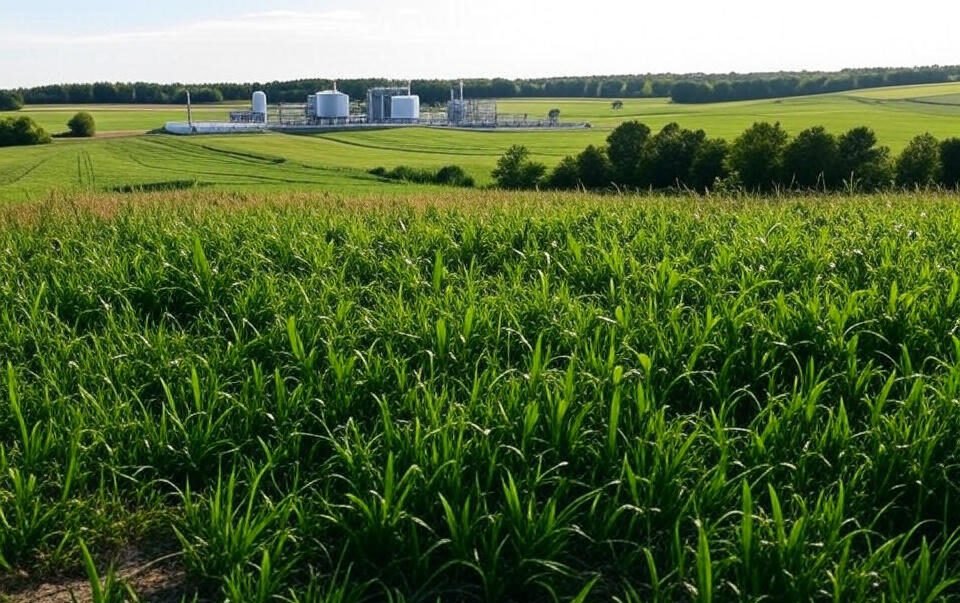People want energy that does less harm to the planet. Natural gas stands out as a cleaner fuel choice. It pollutes less than other fuels and helps protect the environment. We explores the environmental benefits of natural gas with clear facts from trusted sources. Learn how it supports a healthier planet.
What Is Natural Gas?
Natural gas comes from deep underground, formed over millions of years from ancient plants and animals. Workers drill to extract it, and methane is its main component. It’s used to heat homes, cook meals, and generate electricity.
Unlike coal or oil, natural gas travels through pipelines, making it efficient. Many countries depend on it for power. Experts view it as a step toward cleaner energy options.
Reduced Carbon Dioxide Emissions
Burning natural gas releases less carbon dioxide, a gas that warms the planet. Power plants using natural gas emit about 50% less carbon dioxide than coal plants. This reduction helps fight climate change.
Switching to natural gas from other fuels lowers emissions quickly. In the United States, this change has cut carbon output from electricity production. Natural gas is key to meeting climate goals.
Natural Gas vs. Coal
Coal mining and burning pollute the air heavily. Coal plants release high amounts of carbon dioxide. In contrast, natural gas produces 50 to 60% less carbon dioxide in modern plants. This makes it a better environmental choice.
Coal creates ash and other waste, while natural gas burns cleanly with little residue. Many countries switch from coal to natural gas to improve air quality.
Natural Gas vs. Oil
Oil used for transport or heating adds to emissions. Natural gas emits about 30% less carbon dioxide than oil. Vehicles running on natural gas, like buses or trucks, pollute less.
Oil spills damage land and water, but natural gas travels through pipelines, reducing spill risks. This fuel minimizes harm to ecosystems.
Lower Air Pollution
Natural gas reduces other harmful pollutants. It releases minimal sulfur dioxide and nitrogen oxides, which cause acid rain and smog. Gas-powered plants emit far less of these than coal plants.
It also produces almost no mercury or fine particles, which can harm lungs and hearts. Cities using more natural gas enjoy cleaner air, improving public health and reducing medical costs.
In homes, gas stoves and heaters pollute less than wood or coal alternatives. This leads to better indoor air quality and healthier living spaces.
Support for Renewable Energy
Renewable energy sources like solar and wind are growing. They need backup when the sun isn’t shining or the wind isn’t blowing. Natural gas plants start quickly, filling these gaps and keeping the power grid stable.
By supporting renewables, natural gas helps the world shift to greener energy. It acts as a reliable partner while renewable technology grows.
Methane Leak Control
Methane, the main part of natural gas, can leak during drilling or transport. Methane traps heat more than carbon dioxide, so leaks are a concern. However, companies now use better technology to detect and fix leaks.
Rules in many countries require low methane emissions. These efforts make natural gas a safer choice for the environment.
Land and Water Benefits
Natural gas drilling uses less land than coal mining. Coal mines disrupt large areas, harming plants and animals. Gas wells have a smaller footprint, preserving more natural spaces.
Gas production also uses less water than coal or oil processes. This saves water resources and reduces strain on local supplies.
Conclusion
Natural gas offers clear environmental benefits. It cuts carbon dioxide emissions, reduces air pollution, and supports renewable energy. Compared to coal and oil, it’s a cleaner choice that protects land and water. While methane leaks need careful management, new technology and rules help address this issue. Natural gas serves as a bridge to a cleaner energy future, balancing today’s needs with tomorrow’s goals.
FAQs
Why is natural gas better for the environment than coal?
Natural gas produces 50 to 60% less carbon dioxide than coal when burned. It also releases fewer pollutants like sulfur dioxide and mercury, leading to cleaner air.
How does natural gas support renewable energy?
Natural gas plants start quickly, providing power when solar or wind energy isn’t available. This keeps the power grid stable as renewables grow.
Are there risks with natural gas?
Methane leaks are a concern because methane traps heat. However, new technology and strict rules help detect and reduce leaks, making natural gas safer.
Does natural gas use less water than other fuels?
Yes, natural gas production uses less water than coal or oil processes. This helps conserve water and reduces environmental impact.








